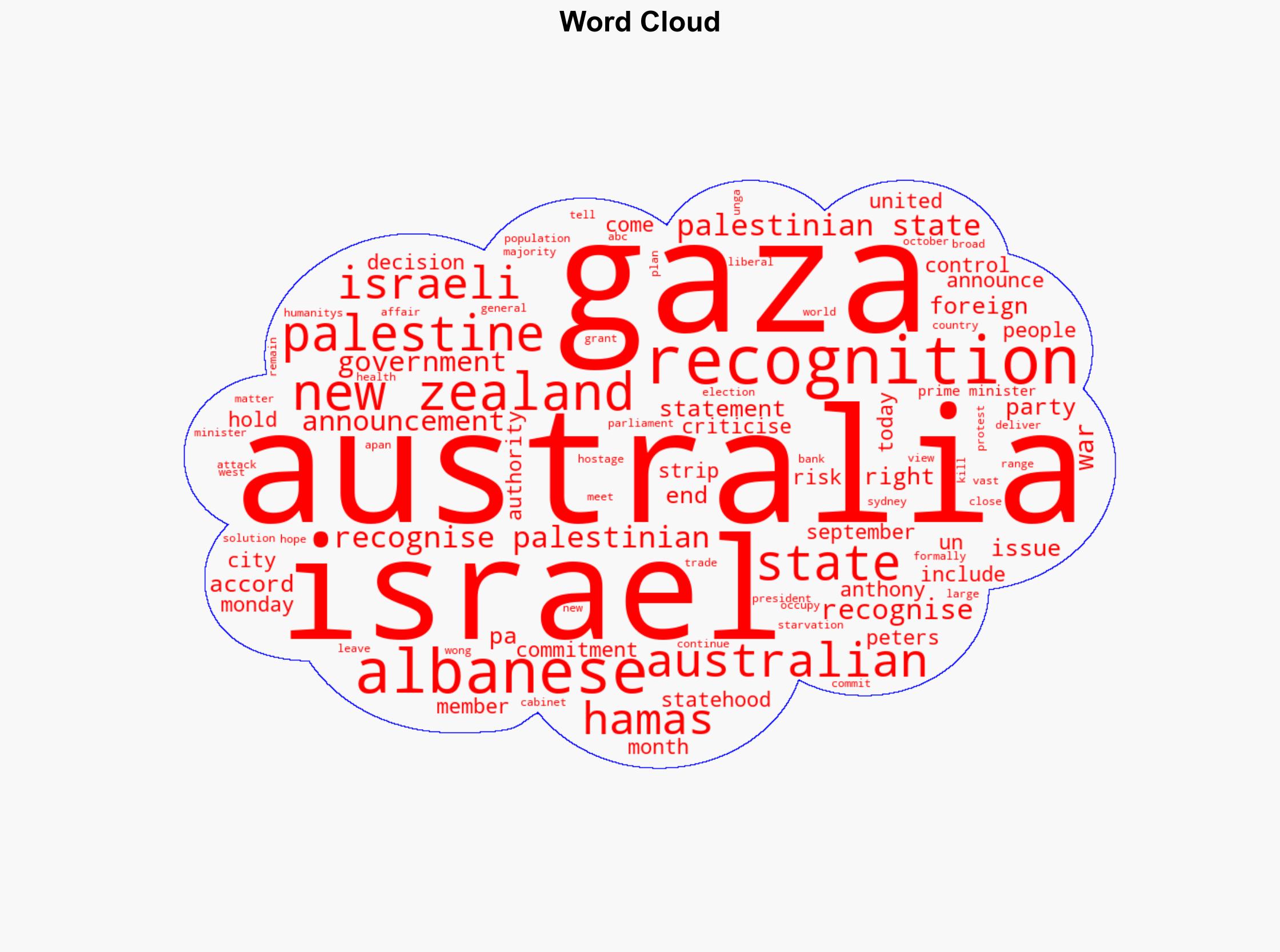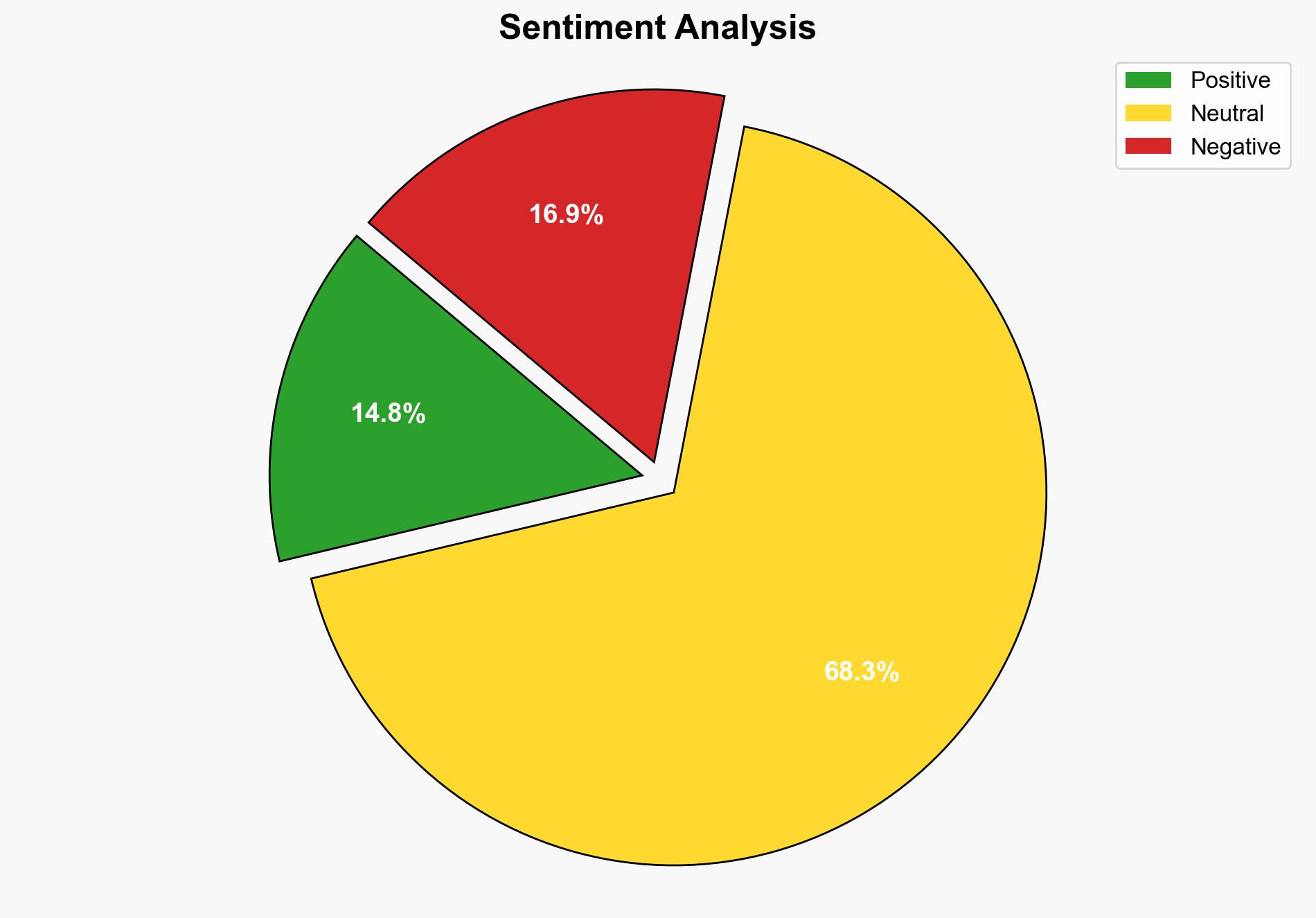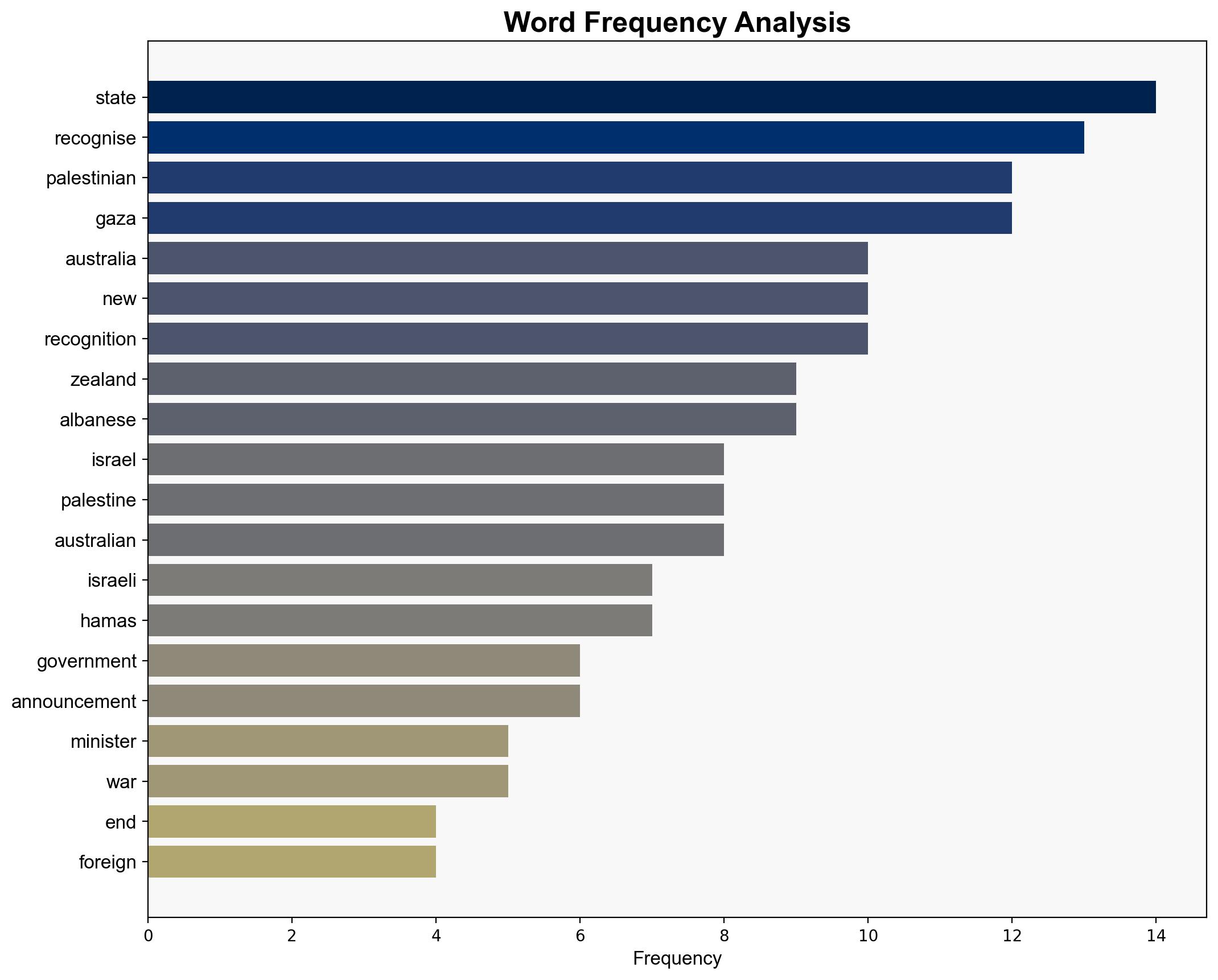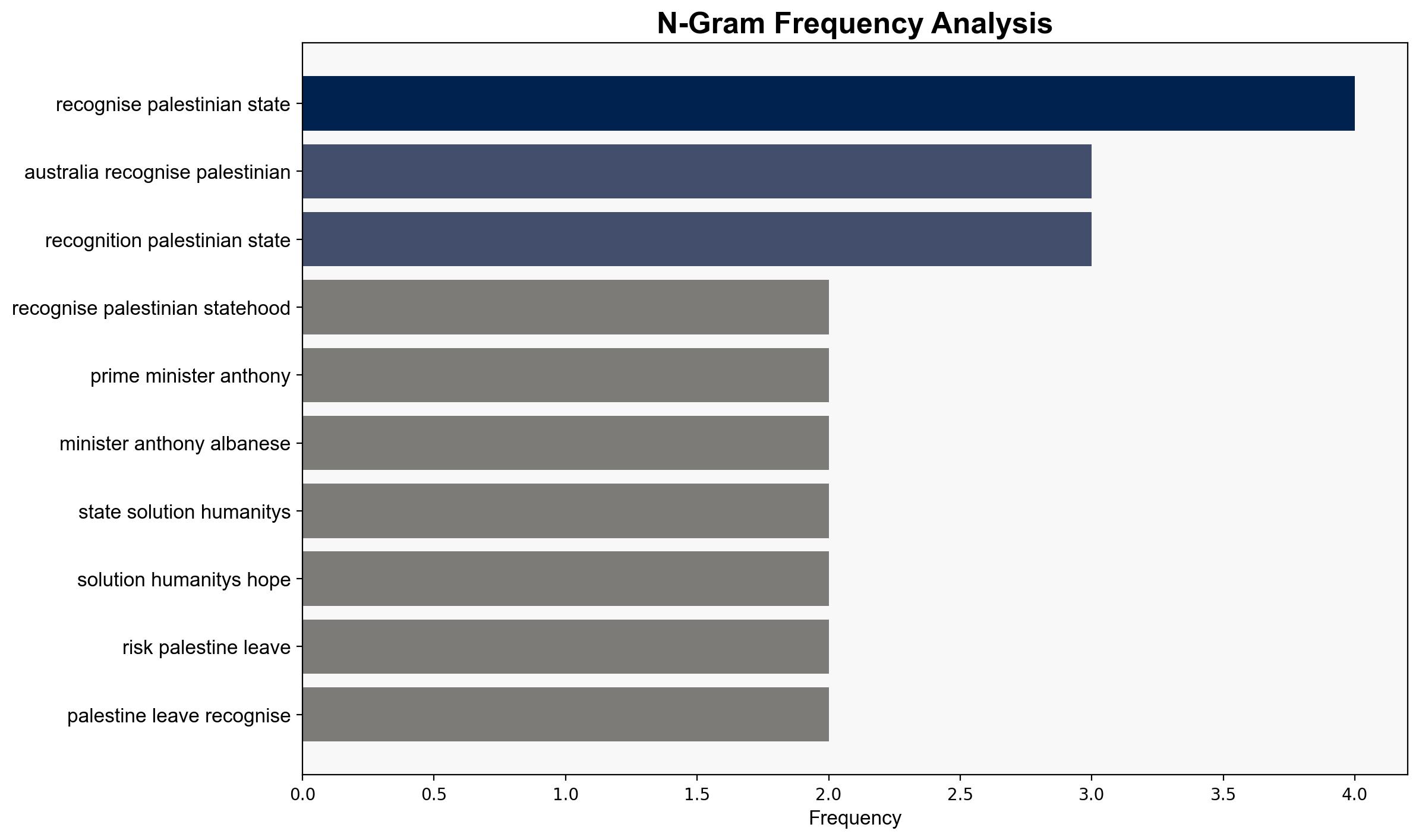Australia to recognise Palestinian statehood New Zealand may follow – Al Jazeera English
Published on: 2025-08-11
Intelligence Report: Australia to recognise Palestinian statehood New Zealand may follow – Al Jazeera English
1. BLUF (Bottom Line Up Front)
Australia’s decision to recognize Palestinian statehood, potentially followed by New Zealand, signals a shift in regional diplomatic dynamics. The most supported hypothesis is that this move aims to align with a broader international consensus and respond to domestic public pressure. Confidence level: Moderate. Recommended action: Monitor regional reactions and prepare for potential diplomatic fallout with Israel and its allies.
2. Competing Hypotheses
1. **Hypothesis A**: Australia’s recognition of Palestinian statehood is primarily driven by domestic political pressure and public opinion, aiming to address humanitarian concerns and align with global sentiment.
– **Supporting Evidence**: Large public protests in Australia, statements from Australian Greens, and alignment with other UN member states.
2. **Hypothesis B**: The recognition is a strategic geopolitical maneuver to enhance Australia’s influence in Middle Eastern affairs and strengthen ties with countries supporting Palestinian statehood.
– **Supporting Evidence**: Coordination with other countries like Canada, France, and the UK, and the timing of the announcement at the UN General Assembly.
3. Key Assumptions and Red Flags
– **Assumptions**:
– Australia’s decision is based on a genuine commitment to a two-state solution.
– New Zealand will follow suit based on similar motivations.
– **Red Flags**:
– Potential backlash from Israel and its allies, notably the United States.
– Domestic opposition from the Liberal Party and concerns about rewarding Hamas.
– **Blind Spots**:
– Lack of detailed response plans if diplomatic relations with Israel deteriorate.
– Unclear commitments from the Palestinian Authority regarding peace and security.
4. Implications and Strategic Risks
– **Geopolitical Risks**: Strained relations with Israel and potential diplomatic tensions with the United States.
– **Economic Risks**: Possible impacts on trade relations with countries opposing the recognition.
– **Psychological Risks**: Domestic political polarization and increased public protests.
– **Cascading Threats**: Escalation of regional tensions in the Middle East, affecting global stability.
5. Recommendations and Outlook
- Engage in diplomatic dialogues with Israel and the United States to mitigate potential fallout.
- Enhance intelligence monitoring of regional reactions and prepare contingency plans for economic impacts.
- Scenario Projections:
– **Best Case**: Successful alignment with international consensus, enhancing Australia’s global standing.
– **Worst Case**: Severe diplomatic rift with Israel and its allies, leading to economic and political repercussions.
– **Most Likely**: Moderate diplomatic tension with manageable economic impacts, with New Zealand following Australia’s lead.
6. Key Individuals and Entities
– Anthony Albanese
– Penny Wong
– Amir Maimon
– Isaac Herzog
– Sussan Ley
– David Shoebridge
– Australian Palestine Advocacy Network (APAN)
7. Thematic Tags
national security threats, geopolitical strategy, diplomatic relations, Middle East policy





